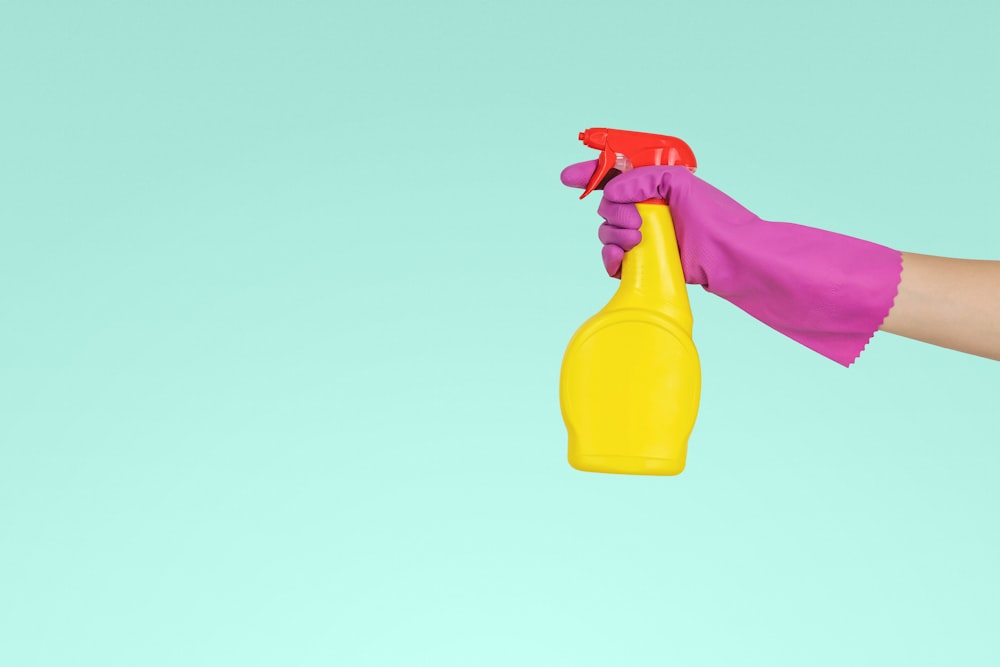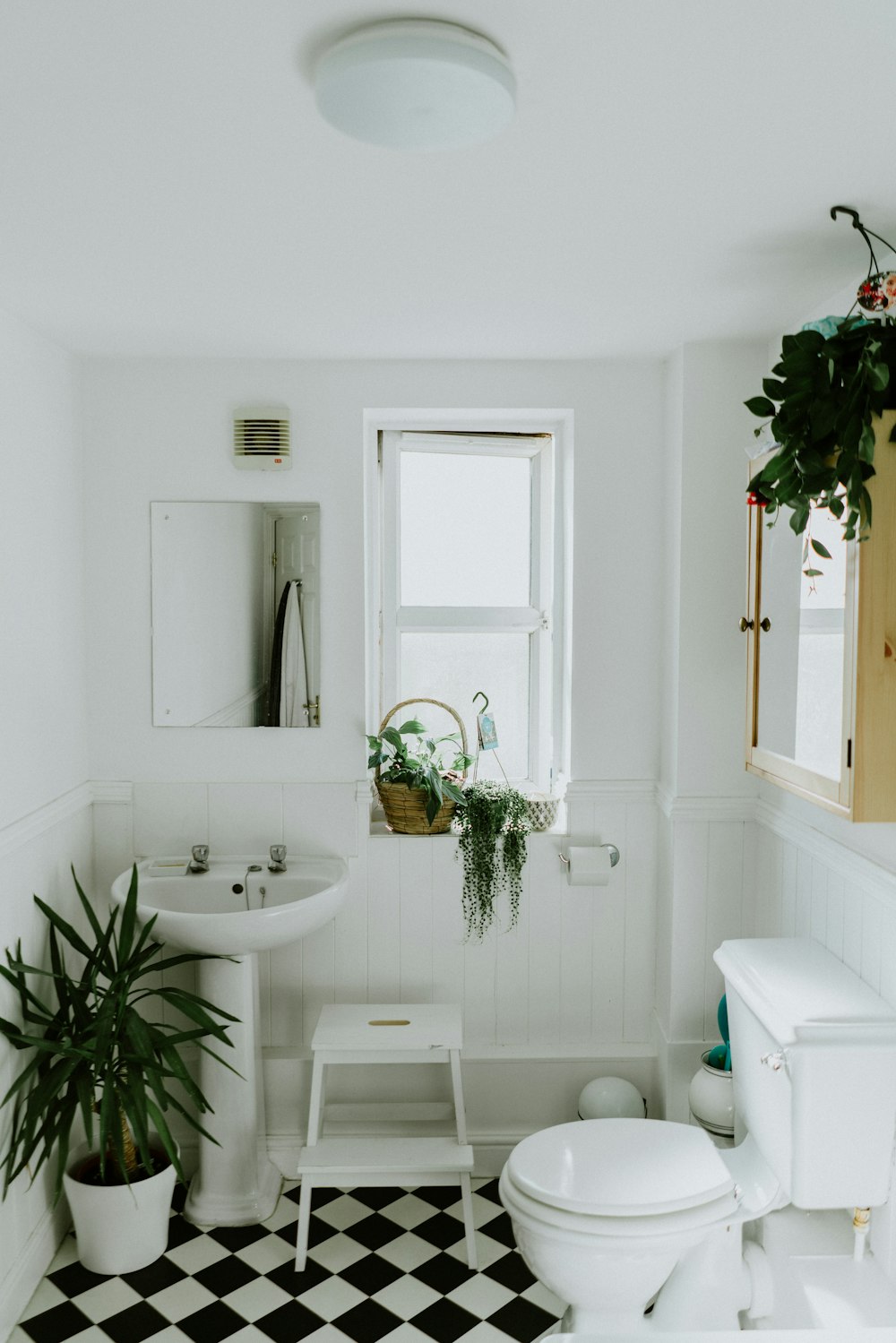Allergy Problems: Easing Allergy Stress

Many people suffer from allergies every year. Whether it's the seasonal hay fever or an allergy to a specific food product, these symptoms can be quite bothersome. However, there are some ways you can help ease your allergy stress and live a more comfortable life. This article will discuss 20 different strategies for easing your allergy symptoms and reducing your allergic reactions!
1. Keep your home clean
A clean home is a healthy one for you and your family. Keep your floors vacuumed to reduce the amount of dust in the air, and make sure that bedding, furniture and carpets are often cleaned or replaced with new ones as needed!
Also, try to clean all surfaces in your house daily with warm water and soap or detergent. This includes wood furniture, floors, walls-everything! Dust any hardwood furniture weekly with a damp cloth instead of using an old rag which may have traces of dirt left behind by previous use. Use microfiber cloths for dusting most surfaces because they capture debris more effectively than other types of fabric material like cotton towels.
2. Use a vacuum cleaner with a HEPA filter to minimize allergens in the air
Vacuum cleaners come in different forms and functionality. When it comes to cleaning allergens, vacuums with HEPA filters are usually recommended. What is a HEPA filter? The acronym stands for "high-efficiency particulate air." These filters trap microscopic allergens like dust mites, pollen and pet fur. This reduces the amount of these substances in the home, which can trigger allergy attacks or asthma.
A vacuum cleaner with a HEPA filter may be more expensive, but it will offer better protection than regular vacuums without one. Vacuum cleaners are also available as combination units that include an upright cleaner with built-in non-HEPA attachments such as a floor sweeper, brush attachment or crevice tool to clean out cracks and crannies where house dust collects.
If you have allergies or family members who suffer from them, then consider using this type of vacuum cleaner may be more beneficial.
3. Get a humidifier to add moisture to the air.
Adding an extra supply of humidity can be a great way to ease allergy symptoms because it helps trap pollen and other allergens.
If you have breathing problems or are at risk for asthma, then they may want to consider using one of these devices in your home during the winter months when windows are closed, and indoor air is often dryer than outdoor air.
For people who suffer from chronic allergies like hay fever, this added moisture will help prevent them from suffering as much with their seasonal allergies. Depending on where you live, there may also be public laws that require humidifiers over certain size levels if used in close proximity to others, such as schools or office buildings.
There are various types of humidifiers. A cool-mist type humidifier is the most common type of humidifier. It comes in different sizes and evaporates water to release the humidity, often in a thin mist that can be directly released into the air or directed toward surfaces in rooms such as furniture and floors for added moisture. Many models also have heating coils that heat up before releasing steam from the top of the unit. This is usually used when there's no need for someone with allergies to breathe in any visible vapour droplets, like if they're congested due to colds or flu.
4. Take out the trash regularly
It is crucial to take out the trash as often as possible, with a frequency determined by how many people live at your house. If your family is large, you will need to take out the trash on a daily basis. If you live alone or with only one other person in the house, it may be safe enough to wait once every few days.
Taking out the trash regularly can reduce allergens floating around your home. If you let trash pile up, it will create an environment ripe for allergy symptoms.
5. Clean your pet's bedding and brush its fur weekly
Brush your pet's fur to remove hair and skin cells that can trigger allergy symptoms. In addition to that, clean their bedding regularly to reduce the amount of dust and allergens in your home.
Pet dander can cause allergy symptoms, so be sure that you are taking care of these furry friends!
6. Remove clutter from your home
Removing clutter from your home will help keep dust at bay. An uncluttered home is easier to clean regularly and will keep you from accidentally spreading allergens. You'll be able to quickly see the spots that need cleaning, and it will also help prevent a buildup of dust on your furniture over time. Incorporating this tip into your household routines can help you feel less overwhelmed by allergies.
7. Wash sheets, towels, and clothes often
You may have large hampers for used and dirty clothes or towels at home, but that doesn't mean you have to wait for these items to fill up before doing laundry. Wash sheets, towels and clothes often so that they don't accumulate dust or allergens from outside the home.
Over time, allergens can build up in used clothing and linens, which will then be carried back into your house when you wear them again. Avoid this by washing any item with a protective liner like a pillow cover at least once every two weeks (or even more if needed). Pillowcases should be washed after each use to keep dust mites away!
If you have pets or small children, always consider adding an extra rinse cycle for their bedding as it may contain animal dander or urine residues which are potent sources of allergies for many people.
8. Vacuum carpets with an attachment designed for upholstery or furniture (not one you use on floors)
Use appropriate vacuum attachments when cleaning upholstery or furniture. This will keep the allergens from being distributed back into your home.
This step is important in protecting individuals with allergies, as well as those who may be allergic to pet dander or dust mites. These tiny particles can circulate throughout a household and trigger reactions for allergy sufferers even if they are not present in large quantities. Vacuuming carpets with an attachment designed for upholstery or furniture (not one you use on floors) can help reduce this problem by removing these tiny particles before they have time to get re-distributed around a house.
This is important because it is easier to get rid of allergen-carrying dust bunnies that way than by using a regular vacuum cleaner tip or attachment.
9. Turn off heating vents when not in use
How do active heating vents provoke allergies? The heated air flows through the vents, releasing dust and mould spores into the environment.
This causes an increase in particles that can cause allergies to flare up. To avoid this mess, turn off heating vents when not in use or only allow them to run for a few minutes per hour.
10. Install heavy-duty window screens
If you want to invest in one product that can dramatically impact your allergy symptoms, invest in heavy-duty window screens. By installing them in the windows where you spend most of your time (for example, in rooms where you stay most of the time or in your home office where you work), they can keep pollen and other allergens out.
11. Plant trees away from windows
Do you enjoy having your windows open and letting fresh air come in?
If you do but have allergies that come from tree pollen, you may want to plant your trees away from the windows because pollen from nearby trees can enter the window and then be blown inside.
12. Add plants inside your home
This tip is for those who don't have plant allergies. It is also best for people with allergic symptoms that are exacerbated by less oxygen indoor.
To solve the problem of low oxygen levels indoors, you can add plants inside. Not only do they make household spaces look prettier and more appealing to spend time in, but adding a few houseplants may provide relief for allergy sufferers.
Indoor gardening has many benefits. By acting as air filters, indoor plants can purify the indoor air that you breathe and hopefully minimize the allergic reactions associated with low-quality air.
13. Get high-quality filters for any furnaces or air conditioners
If you feel that your allergies are provoked by dust coming from air conditioners and furnaces, even with frequent cleaning, you need to change the furnace and air conditioner filters. This is not only a good idea for reducing allergens, but these filters will also assure that your family breathes cleaner, more breathable air that can alleviate allergy symptoms.
When purchasing filters, always remember that expensive filters are not always the best. You need to buy according to the square footage of your home and take into consideration what type of filter you use on furnaces or air conditioners at home:
- Filters for central heating systems with more than 1625 square feet should be electrostatic filters, also known as HEPA (high-efficiency particulate air) filtres
- If your furnace has a capacity lower than 1625 sq ft, ensure that it includes either an electrostatic filter or a pleated panel media filter.
- Air conditioning filters are usually made from paper with metal mesh embedded in them.
These recommendations, however, may change, especially if new developments on filters are made.
In the meantime, it is best to follow your manufacturer's recommendations on which filter type and size you need for your furnace or air conditioner. Or consult an expert in this field like a home inspector.
14. Stay hydrated
Staying hydrated can keep allergy symptoms at bay. When your body is dehydrated, it fails to produce enough of the fluids necessary for sinus function. This means that when pollen and other allergens enter the airways, their irritating properties are enhanced by an already-stressed system.
Drinking enough water a day can alleviate this process by promoting healthy fluid levels in the respiratory tract. To achieve this goal, you should drink enough fluids, especially water, each day.
How much water should you drink each day?
There is no single answer to this question. The amount of water an individual needs each day can vary based on factors such as activity level, metabolism rate, and diet. A good rule of thumb for those who are healthy adults with a sedentary lifestyle is approximately eight glasses per day (64 ounces).
The best way to know if you're getting enough fluids during the course of the day is through checking your urine colour; it should be pale yellow in appearance. If it's clear or dark yellow, then you need more fluid intake throughout the day.
You can also drink other fluids that are not caffeinated, such as sports drinks or decaffeinated tea and coffee with dairy products like milk or creamers.
The benefits of increased fluid intake go beyond the prevention of allergy symptoms; it is an important indicator in maintaining your overall health.
15. Boost your immune system
To avoid frequent allergic reactions and get your body to withstand allergy triggers, make it a goal to boost your immune system.
We all know that a healthy immune system is a key to fighting off infections, and allergies are no exception. The more you strengthen it, the better your body will be able to fight any potential allergens that enter it.

When looking for ways to boost immunity, consider adding foods rich in antioxidants such as blueberries or kale into your diet. Antioxidants can help your immune system by allowing it to repair cells damaged from free radicals. These radicals form when our bodies react with something such as pollen on an allergy sufferer's skin surface. Even though they seem like just air molecules floating around us at all times, some of these particles act like tiny needles piercing mucous membranes causing allergic reactions if we aren't careful!
Besides getting antioxidants from eating a healthy diet, you can also take supplements like probiotics, omega-three fatty acids or vitamin D that are known to help fortify the immune system.
16. Know what triggers your allergic reactions
It's important to know what triggers your allergic reactions so you can better avoid them in the future and lessen their severity when they happen again. This may mean keeping an allergy journal where you track down things that trigger symptoms for you - from dust mites in bedding to being outside on windy days.
Common allergens include pollen from trees, grasses, weeds, moulds, dust particles, animal hair, and secretions. Other triggers include insect bites, food items such as egg whites/shells, milk products, and nuts, including cheese, peanuts, and the like.
Avoiding allergens is difficult, but there are some things you can do to lessen the impact. For example, if your allergies make it hard for you to sleep at night because of allergic rhinitis or asthma, then consider getting a humidifier that will help keep moisture in the air and prevent dryness that can aggravate these symptoms.
If possible, try not to go outside when pollen counts are high as this may trigger an episode; instead, stay inside on days like these with windows closed until allergy season passes (most people have hay fever throughout May). In addition, take precautions during garden work by wearing gloves and eye protection, among other steps like using a diluted cleaning solution that you use for washing clothes or dishes.
17. Ask your physician for medications
Allergic responses such as the production of phlegm, stuffy nose, and inflammation are our body's way of fighting against foreign molecules. It's the body's reflex and a way of protecting itself. Sometimes you can just let them run their course and let your body do its thing. Other times, the best way to get relief is by taking a medication that will block the allergic response.
There are many medications that can help control your allergic symptoms; these include shots for allergies, antihistamines, and decongestants.
Remember, however, that it is imperative to ask your physician about these medications before you start using them.
Fortifying your immune system against allergies with supplements, herbs and spices
If you are considering the use of supplements to boost your immune system, here are some supplements that have been found to be effective in easing allergy symptoms.
Omega-three fatty acids
Omega 3 fatty acid supplements can help boost your immune system and keep allergies at bay. These acids are naturally found in salmon, nuts and olive oil and are great for the immune system. These fats help to promote some specific functions of our body's own natural defences, like promoting healthy inflammation responses or reducing excessive tissue damage.
Probiotics
Probiotics can help to ease allergy symptoms by balancing the pH in your stomach. This helps decrease the amount of allergic substances your stomach releases and boost your immune system.
Quercetin
Quercetin is a natural plant flavonoid that can help with sinus congestion and asthma as well as allergies. It has the ability to act like an antihistaminic through the inhibition of inflammatory mediators and enzymes that initiates the allergic response.
Vitamin C
Vitamin C is a popular supplement for fighting against allergies. It is a water-soluble vitamin and can easily be converted into ascorbic acid, which carries antihistamine properties.
Vitamin D
Studies show that vitamin D deficiencies are associated with increased levels of histamine in the body. This may be because Vitamin D is needed for the proper functioning of mast cells, which are white blood cells that release histamine when they come into contact with allergens.
Zinc
Some health experts say that zinc is good for some allergies and can reduce inflammation and symptoms like nasal congestion typically caused by allergies to dust mites or pollen. Furthermore, zinc works as a natural antihistamine by blocking the release of histamines from mast cells.
Applied Science Nutrition's Products that might interest you:
Immune Support
The Applied Science Nutrition's Immune Support contains powerful ingredients such as D-Alpha, Vitamin E, and selenium. These are essential for protecting the body against free radical damage that cellular ageing and chronic illness trigger.

This rich plant formula is formulated to provide targeted nutritional supplementation to the immune system with an extra dose of Vitamin C (L-Ascorbic Acid), Selenium, Calcium, Zinc and B Vitamins.
Multivitamins
When you need a nutritional boost, the specially formulated Applied Science Nutrition’s Multivitamins is an excellent choice.

Made with essential nutrients for your changing body as you age, this all-in-one formula will boost your immune system and keep your heart healthy while reducing cholesterol to regulate eye health and improve cognitive function.
Omega 3 Fatty Acid
Applied Science Nutrition's Omega 3 Fatty Acid comes from wild-caught fish, such as salmon, herring, mackerel and other plant sources.

This product contains a balance of high potency Omega 3 oils comprising EPA, DHA and DPA in pill form.
Total Gut Solution
Total Gut Solution is an effective digestive supplement that promotes healthy weight loss.

The product contains ingredients designed to maintain gut bacteria, which are vital for the digestion of all foods you consume in your diet. It has a unique blend of naturally occurring probiotics like Bacillus subtilus, Lactobacillus rhamnosus, and other probiotic bacteria.
Always seek help from professional healthcare providers.
There are no stopping pollen seasons, but there are ways of making it more bearable. With a little bit of planning, there's no need to suffer through allergy season.
This blog shared some ways on how you can reduce allergens around the house and find relief for allergy symptoms. To learn more about allergies, do not just rely on this blog but consult with a doctor so you can get the best treatment.
Remember: All these tips may not work 100% of the time because one person's health condition and body's reaction are different from another. But, by taking a few precautions beforehand, you will be able to avoid an allergy attack much more easily!
As always, thank you so much for reading, and please share our blog post with anyone who needs it!!
And as always, keep in mind: This should never replace medical advice from a doctor - if anything feels wrong or you feel that your allergies are getting way out of control, see a professional right away !!!!!











